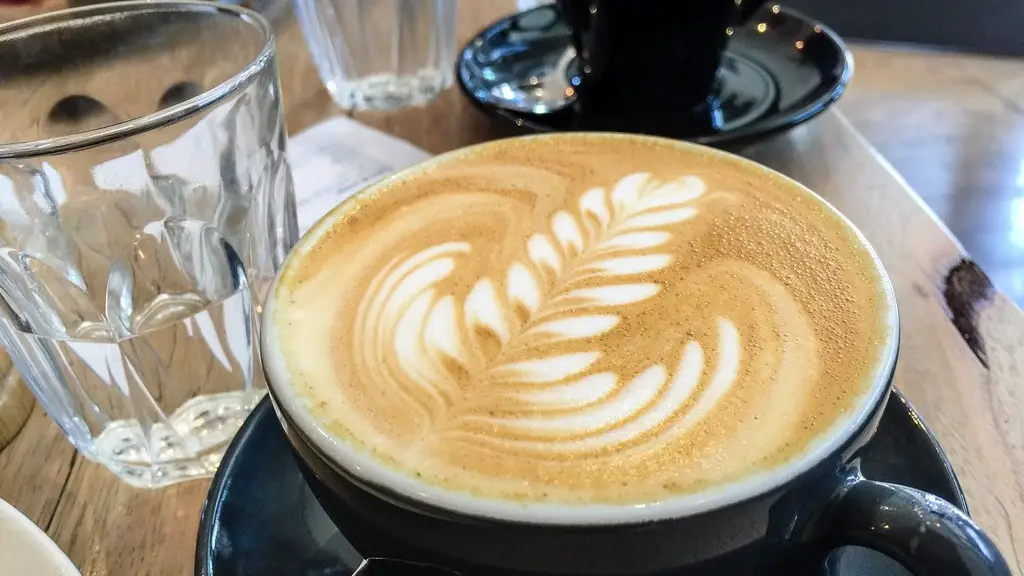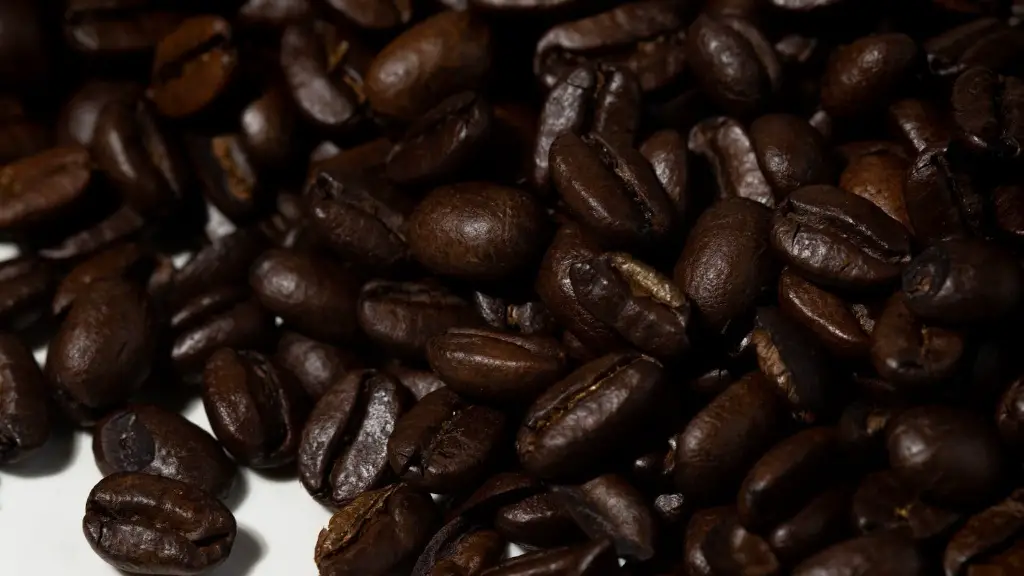Why Do I Feel So Hungry After Drinking Coffee?
Everyone knows that coffee is a great way to start the day and often the beverage point of choice for adults on the go.With more people trading in their three meals a day for frequent snacks, coffee seems like the perfect pick-me-up for the busy lifestyle.But why is it that after an energizing cup of coffee, there is still a sense of hunger?
For one, the caffeine found in coffee can be an appetite suppressant. This means that people may be drinking coffee in an attempt to and satisfy their craving without actually feeling full. This, in part, explains the feeling of hunger after a cup of coffee even though the body may not need any more sustenance.
Also, the sugar often added to coffee can give people an initial dose of energy. But shortly afterwards, the sugar high dissipates, leaving the consumer feeling deflated and unsatisfied. This also can explain the tendency for people to feel hungry shortly after consuming coffee, when in reality it was the combination of sugar and caffeine that created the initial illusion of satiety.
But regardless of why it happens, the feeling of hunger after drinking coffee is something that can have an effect on a person’s health. If people are continuously reaching for coffee instead of a balanced meal when they are hungry, the body will not be getting the important nutrients that it needs to function.
Several studies have shown that when people feel they can eat less while still feeling sated, they tend to make unhealthier food choices, like sugary store-bought snacks. Getting too little of other key food groups like proteins, carbohydrates, and fats can also lead to a deficient diet, overeating, and even malnutrition.
Furthermore, habitual coffee drinking can lead to a dependency on caffeine, depriving the body of adequate restful sleep and leading to a heightened sense of hunger. This type of disruption to the body’s circadian rhythm can lead to further health consequences such as obesity and diabetes.
So it’s important to remember that coffee should only be one of many snacks in a balanced diet. If a person still feels hungry after a cup of coffee, it is necessary to listen to the body’s cries for sustenance and find a snack that is both healthy and satisfying to the body.
How to Avoid Feeling Hungry After Drinking Coffee
One of the best ways to ensure that a person does not feel hungry after drinking coffee is to create a meal plan in advance. Having a clear idea of what to eat and when can help people stay fuller, longer and avoid reaching for coffee as an appetite suppressant.
In addition, being aware of the amount of sugar being consumed each day is essential. Too much sugar can not only lead to feeling hungry shortly after having coffee, but also to an array of other health issues. In order to avoid the potential consequences, be mindful of the amount of sugar added to coffee when drinking it.
Failing to take the necessary steps to prevent feeling hungry after drinking coffee can lead to further health issues over time. Some of the most common include vitamin deficiency, fatigue, and weight gain. The key is to drink coffee in moderation, instead of relying on it as an energy source throughout the day.
The Dangers of Overeating After Drinking Coffee
Overeating after drinking coffee can also have serious consequences for both short-term and long-term health. People are more likely to eat unhealthy snacks or overindulge in fast food when feeling hungry from the effects of their caffeine high.
Research has also shown that the hunger experienced after drinking coffee can cause people to consume more calories than necessary. For example, one study found that people who drank a caffeinated beverage had a higher subsequent caloric intake than those who drank a non-caffeinated beverage.
Combined with the health risks of having too much caffeine mentioned above, this can spell even more trouble for the person’s physical health, often in the form of obesity, heart disease, diabetes and other chronic illnesses.
Benefits of Eating After Drinking Coffee
On the flip side, if done correctly, eating after drinking coffee can have positive benefits. Nutrient-dense and protein-rich snacks, like nuts and seeds, can help to keep a person full for longer and ensure that their bodies are receiving the necessary vitamins and minerals to stay healthy.
In addition, all the health benefits of coffee in moderation can still be enjoyed, ensuring that a person gets the boost they need to start their day while also giving their body the fuel it needs. Eating a healthy snack along with a cup of coffee can provide the right combination of energy, vitamins, and minerals without overdoing it on either.
Caffeine Intake and Sleep
Some people often find themselves more hungry than normal after having caffeine due to sleep disruption. When caffeine is consumed too late in the day, it can worsen the quality of a person’s sleep, leaving them feeling tired and more likely to reach for food the following day.
This means it is important to be aware of when caffeine is consumed and what time it is typically bedtime. Having any kind of caffeine after mid-afternoon may lead to difficulty falling asleep, leading to an increased and unnecessary hunger for sustenance the following day.
Caffeine also affects each person differently and there can be a lot of variability in how long it takes for people to feel the effects of caffeine. For those who are more sensitive to caffeine, they may want to limit their intake or try decaffeinated options in order to avoid feeling hungry or having any of its other adverse effects.
How to Stay Fuller Longer After Drinking Coffee?
If a person is looking to stay fuller longer after drinking coffee, there are a few important steps they can take. The most important is to pair their coffee with a healthy snack that is rich in protein, fiber, and other important nutrients. Nuts, seeds, whole grains, and fruits are all excellent options that can help keep a person full for longer.
Additionally, it is important for people to be mindful of the amount of caffeine they are consuming throughout the day. For those who already have a tolerance for caffeine, sticking to the recommended guidelines for caffeine for healthy adults, which is about 400 mg per day, can help to ensure that a person does not overconsume.
Finally, people should be mindful of when they are consuming coffee and other caffeinated beverages. Having coffee after mid-afternoon can disrupt sleep quality and may cause further health issues such as hunger and fatigue.





